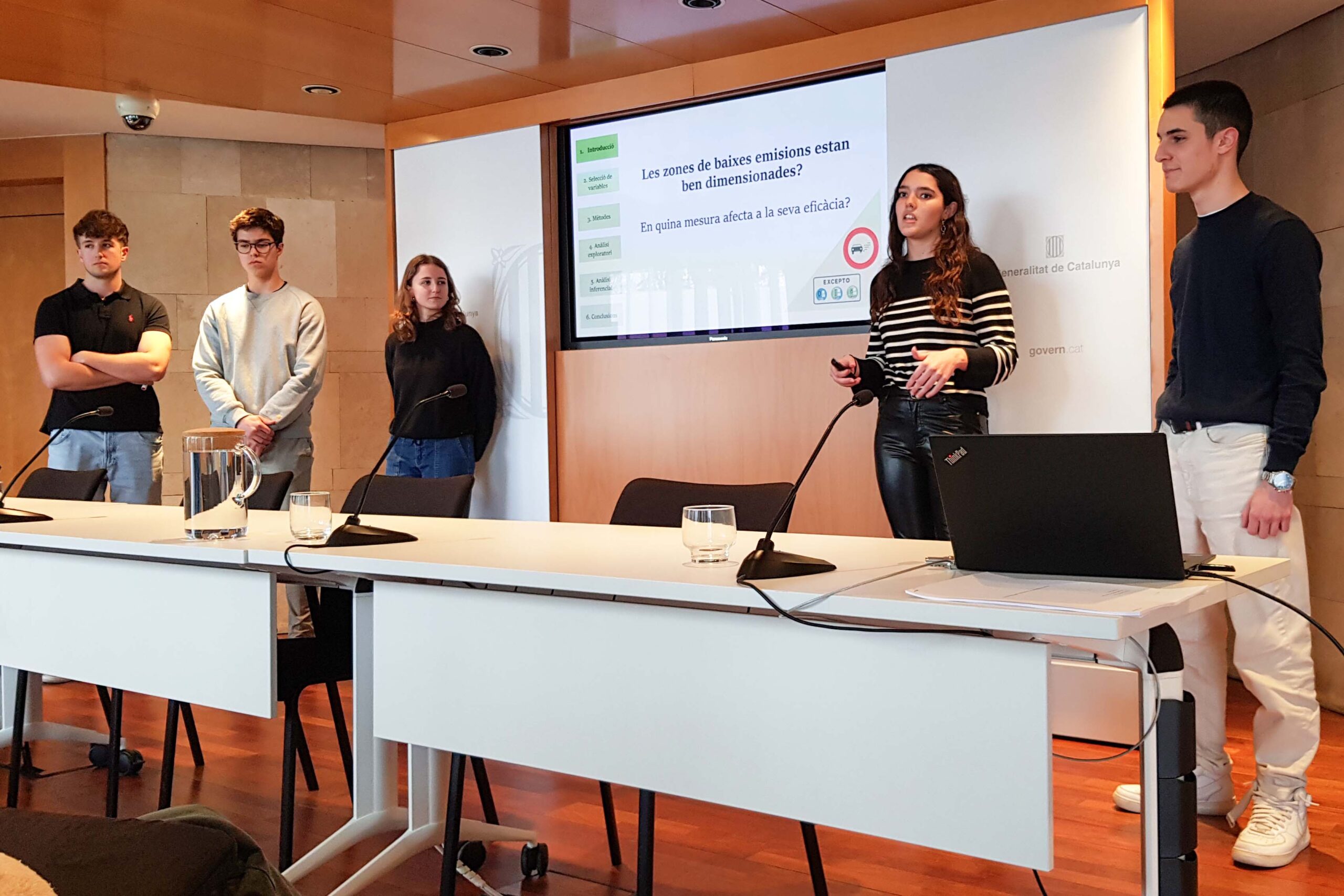Students in the 2nd year of the Bachelor’s Degrees in Chemistry and Chemical Engineering at IQS, accompanied by Statistics professor Dr Laura Fernández Ruano, gave a presentation in the Events Room of the Territorial Department of Catalonia on the conclusions of their study of the LEZ (Low Emissions Zone), entrusted to them in September by the same organization.
IQS Students Present a Study on the Barcelona LEZ to the Territorial Department of Catalonia

Specifically, the students Claudia Ara, Mansuet Carcelero, Mar Doménech, Jan Marc Gibert, and Pol Meneses addressed the questions: Are low emissions zones the right size? and What size impacts their efficacy? The questions were posed at the beginning of the investigation and entrusted to the students by Daniel Fernández Ruiz-Capillas, subdirector general of Transport Affairs and Sectoral Development with the Territorial Department of the Government of Catalonia.
Mr Fernández Ruiz-Capillas praised the professionalism and depth of the analysis and stated, considering that the efficacy of the Low Emissions Zones is a focal point, that he believed the information the students compiled was highly relevant for future decision making.
In concrete, the study highlighted how low emissions zones are an important element in changing habits associated with transport and, although it has not been possible to establish a causal relationship, they are considered an inflection point as of the announcement of their establishment.
The 43 bachelor’s degree students worked in an innovative manner throughout the semester, from the teaching point of view, called Study and Research Route (SRR), to address the questions posed and framed within the project Labinquiry (Labs for Inquiry-Based Teaching in Mathematics and Beyond).
During the presentation event, students from the Bachelor’s Degrees in Mechanical Engineering, Industrial and Automated Electronic Engineering, and Energy Efficiency and Renewable Energy Engineering from the EUSS also presented their results.









